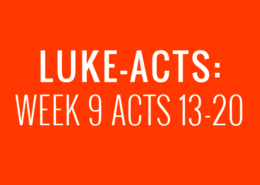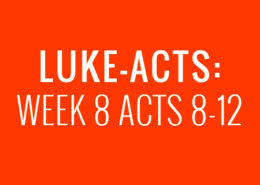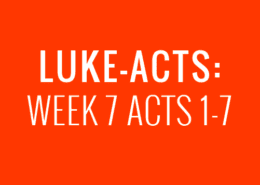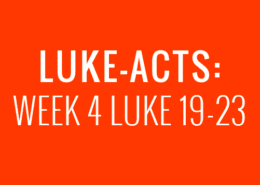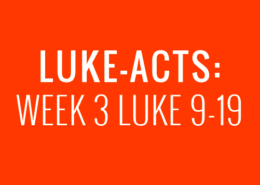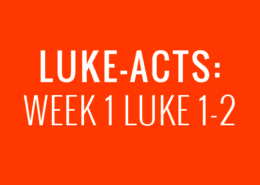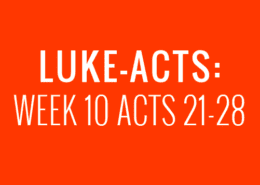
LUKE-ACTS: WEEK 3 LUKE 9-19
Start with talking about Luke & Acts.
Watch the video from us.
Review the notes below.
Jesus carries the covenant story of God and Israel to its culmination and He announces the good news of God’s kingdom to the poor and the rich. Leaders criticized Him because of meeting with the poor.
The Parable of the Prodigal Son is the story of a rebellious son who rejects his father’s upbringing. Prideful and strong, the son heads-off to a far-away land, leads a wild life of adventure, and squanders everything of value (literally and symbolically). Not until he’s confronted with failure and despair, does he return home, repentant and willing to do anything to win back his father’s favor. To his surprise, and the surprise of others, he’s welcomed, without question, into his father’s loving and forgiving arms. No amount of time, no amount of money, and no amount of rebellion could get in the way of the father’s patience and unconditional love for his son. “For this son of mine was dead and is alive again; he was lost and is found” (Luke 15:24). Of course, the awesome message of this parable is that God is patient and gracious with all of His children. He is willing to welcome each of us home into His loving and forgiving arms.
Key Points
- Jesus ministers to the poor, outcasts and others as He brings restoration and reversal to people’s life circumstances and expands God’s covenant to include everyone.
- Jesus uses parables like the prodigal son to teach His followers about the new upside down kingdom that honors humility and welcomes everyone who repents.
- This prodigal son was satisfied to return home as a slave, but to his surprise and delight is restored back into the full privilege of being his father’s son. He had been transformed from a state of destitution to complete restoration.
- The oldest son illustrates the Pharisee, outwardly they lived blameless lives, but inwardly their attitudes were abominable. He was angry with his brother for returning.
- The father, with great patience, goes to his angry and hurting son. He does not rebuke him as his actions and disrespectful address of his father warrant (vs.29, “Look,” he says, instead of addressing him as “father” or “my lord”), nor does his compassion cease as he listens to his complaints and criticisms.
- The older brother’s focus was on himself, and as a result there is no joy in his brother’s arrival home. He is so consumed with issues of justice and equity that he fails to see the value of his brother’s repentance and return.
- The wise father seeks to bring restoration by pointing out that all he has is and has always been available for the asking to his obedient son, as it was his portion of the inheritance since the time of the allotment,
- The picture of the father receiving the son back into relationship is a picture of how we should respond to repentant sinners as well.
- So often we run away from God, but He continues to wait for us with open arms.
Talk About It
- When we sin, do we put ourselves in the pigsty with the long journey home stretching ahead of us? Or do we consider ourselves in the Father’s arms?
- Do you think the older brother was justified for being upset that his brother got a party?
- Why did the older brother think the younger brother should be punished?
- Do you want to see people punished before you forgive them?
- What things are happening in the world today that require forgiveness?
- What does the father’s reaction teach us?
- What do you learn about judging others from this story?
Helpful Resources
The Bible Project: Explore Luke
Got Questions: Parable of the Prodigal Son
The Gospel Coalition: The Turning Point in the Prodigal Son Story


